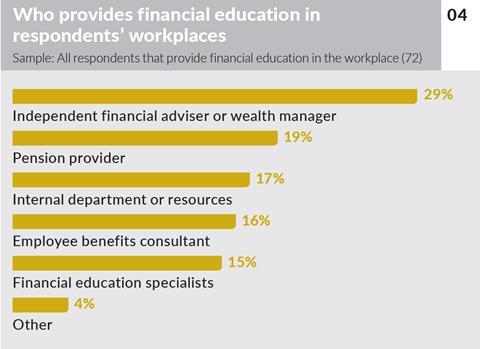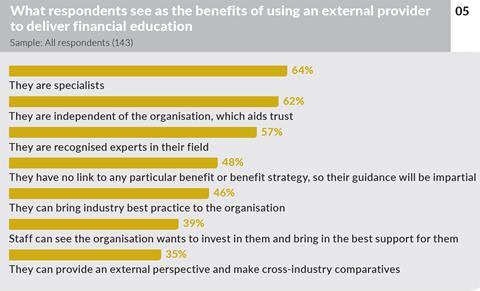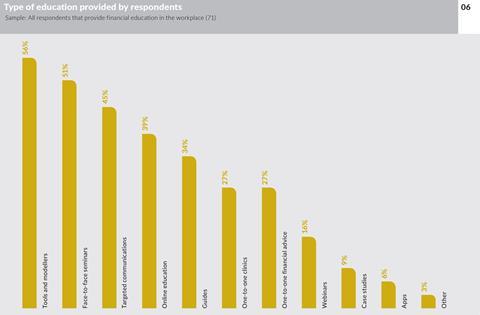
Employee Benefits is hosting a live webinar, Employee Benefits Wired: the changing pensions landscape, at 1pm tomorrow (Tuesday 1 December). Tune in to EB TV to watch the 30-minute panel discussion live. Send your questions to the expert panel by tweeting #EBWired.
EXCLUSIVE RESEARCH: Tools and modellers (56%), along with face-to-face seminars (51%), targeted communication (45%) and online education (39%) are the most common financial education methods, according to the Employee Benefits/Close Brothers Pensions research 2015, which surveyed a total of 259 respondents in September.
While the use of digital and mobile tools for financial education purposes has begun to increase in prominence as the technology develops, just 6% of respondents incorporate apps in their financial education programme, while 16% utilise webinars. Meanwhile, 27% of respondents offer one-to-one clinics and 27% provide access to one-to-one financial advice.
Just 17% of respondents use an internal department or their own resources to provide financial education, while the majority use a specialist professional such as an independent financial advisor or wealth manager (29%) or a pension provider (19%). However, a smaller percentage of respondents (15%) will go to a specialist financial education provider.
Employers recognise that the expertise they have in their organisation may be limited in terms of providing employees with sufficient financial education. Respondents believe that the key benefits an external provider can bring are the fact they are specialists (64%) and recognised experts in their field (57%).
Employers also see value in the external perspective providers can offer and their ability to make cross-industry comparisons (35%). Being impartial to any particular benefit (48%), and independent of the organisation (62%) are seen as advantageous in terms of the trust this can help to build among employees. A further 36% of respondents believe that turning to an external provider for financial education services demonstrates to staff that they want to invest in them and offer the best suppport available.






































